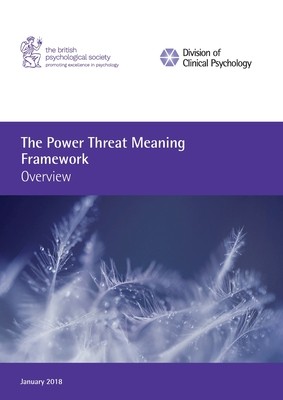
- We will send in 10–14 business days.
- Author: Lucy Johnstone
- Publisher: BPS Books
- ISBN-10: 1854337564
- ISBN-13: 9781854337566
- Format: 21 x 29.7 x 0.8 cm, minkšti viršeliai
- Language: English
- SAVE -10% with code: EXTRA
Reviews
Description
This is an overview of The Power Threat Meaning Framework, which is a new perspective on why people sometimes experience a whole range of forms of distress, confusion, fear, despair, and troubled or troubling behaviour. It is an alternative to the more traditional models based on psychiatric diagnosis. It was co-produced with service users and applies not just to people who have been in contact with the mental health or criminal justice systems, but to all of us. The Framework summarises and integrates a great deal of evidence about the role of various kinds of power in people's lives; the kinds of threat that misuses of power pose to us; and the ways we have learned as human beings to respond to threat. In traditional mental health practice, these threat responses are sometimes called 'symptoms'. The Framework also looks at how we make sense of these difficult experiences, and how messages from wider society can increase our feelings of shame, self-blame, isolation, fear and guilt.
This overview publication is structured as follows:
Part 1: Summary of the PTM Framework, its core principles, purposes and scope.
This brief summary orients the reader to the main features of the PTM Framework.
Part 2: Summary of theory and research underpinning the PTM Framework. This briefly recaps some of the conclusions from the literature on the role of factors from various fields, including biological, psychological, social, political and cultural, in the origins and persistence of emotional distress and troubling behaviour.
Part 3: The Power Threat Meaning Framework. This demonstrates how theory and research can be used to support a meta-approach, the Power Threat Meaning Framework. The relationship between the various elements of the PTM Framework is illustrated through the Foundational Power Threat Meaning Pattern.
Part 4: Provisional General Patterns arising out of the Foundational Pattern.
Some General Patterns that emerge from the Foundational Power Threat Meaning
Pattern are outlined. These patterns can be used as a basis and resource for the
co-construction of new personal and social narratives, as well as suggesting alternatives to diagnosis for service delivery/administrative/legal/service planning/research and related purposes.
Part 5: Personal narratives within the Power Threat Meaning Framework. The role, purpose and possible formats of personal narratives within the PTM Framework are illustrated and discussed, along with options for non-medical language use.
EXTRA 10 % discount with code: EXTRA
The promotion ends in 22d.10:28:12
The discount code is valid when purchasing from 10 €. Discounts do not stack.
- Author: Lucy Johnstone
- Publisher: BPS Books
- ISBN-10: 1854337564
- ISBN-13: 9781854337566
- Format: 21 x 29.7 x 0.8 cm, minkšti viršeliai
- Language: English English
This is an overview of The Power Threat Meaning Framework, which is a new perspective on why people sometimes experience a whole range of forms of distress, confusion, fear, despair, and troubled or troubling behaviour. It is an alternative to the more traditional models based on psychiatric diagnosis. It was co-produced with service users and applies not just to people who have been in contact with the mental health or criminal justice systems, but to all of us. The Framework summarises and integrates a great deal of evidence about the role of various kinds of power in people's lives; the kinds of threat that misuses of power pose to us; and the ways we have learned as human beings to respond to threat. In traditional mental health practice, these threat responses are sometimes called 'symptoms'. The Framework also looks at how we make sense of these difficult experiences, and how messages from wider society can increase our feelings of shame, self-blame, isolation, fear and guilt.
This overview publication is structured as follows:
Part 1: Summary of the PTM Framework, its core principles, purposes and scope.
This brief summary orients the reader to the main features of the PTM Framework.
Part 2: Summary of theory and research underpinning the PTM Framework. This briefly recaps some of the conclusions from the literature on the role of factors from various fields, including biological, psychological, social, political and cultural, in the origins and persistence of emotional distress and troubling behaviour.
Part 3: The Power Threat Meaning Framework. This demonstrates how theory and research can be used to support a meta-approach, the Power Threat Meaning Framework. The relationship between the various elements of the PTM Framework is illustrated through the Foundational Power Threat Meaning Pattern.
Part 4: Provisional General Patterns arising out of the Foundational Pattern.
Some General Patterns that emerge from the Foundational Power Threat Meaning
Pattern are outlined. These patterns can be used as a basis and resource for the
co-construction of new personal and social narratives, as well as suggesting alternatives to diagnosis for service delivery/administrative/legal/service planning/research and related purposes.
Part 5: Personal narratives within the Power Threat Meaning Framework. The role, purpose and possible formats of personal narratives within the PTM Framework are illustrated and discussed, along with options for non-medical language use.


Reviews